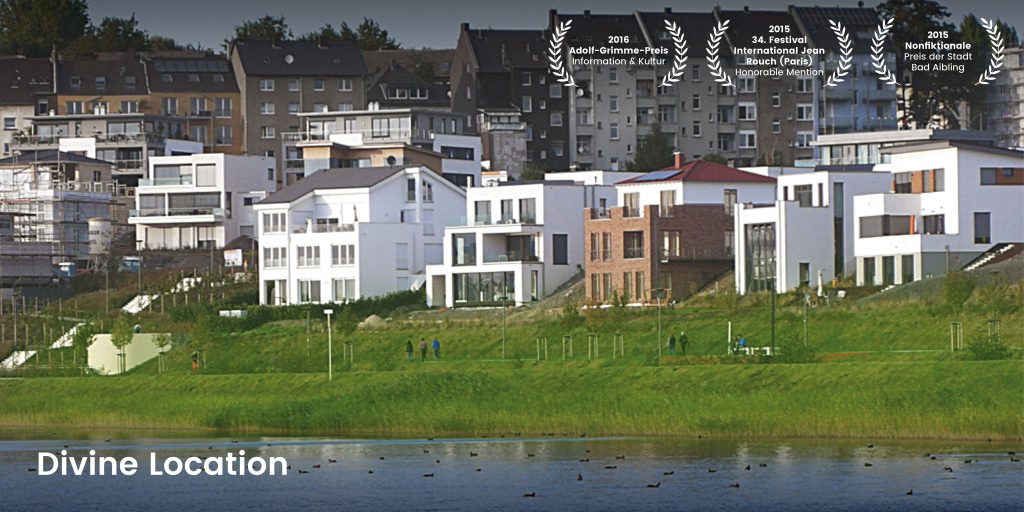
Divine Location
A City Reinvents Itself
DOCU | FILM | CINEMA
Germany 2014
99 Min (D)
DIrectors: Ulrike Franke, Michael Loeken
Distribution: realfiction
For educational institutions:
We watch as a beautiful artificial lake is developed on the vast site of a former steelworks plant: Lake Phoenix. We meet old locals, attend client meetings and accompany new residents who tell us of their plans and dreams. We watch as they all become winners or losers in the game called social progress.
TRAILER
AWARDS

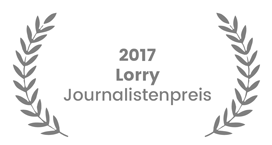

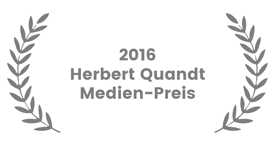

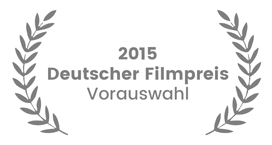
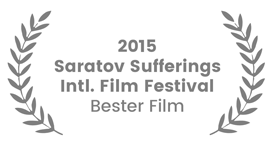

FESTIVALS
2019 — Werkleitz Festivale Dessau / Modell und Ruine / Dessau, Germany
2017 — archiciné: Saarart11 / Architekturfilmtage / Saarbrücken, Germany
2016 — World Film Festival / Tartu, Estonia
2015 — 34. Festival International Jean Rouch / Paris, France
2015 — AFFR / Architecture Film Festival / Rotterdam, Netherlands
2015 — 27. Der Neue Heimatfilm / Freistadt, Austria
2015 — Saratov Sufferings Intl. Film Festival / Saratow, Russia
2015 — MAFF / 13. Matsalu Loodusfilmide Festival / Lihula, Estonia
2015 — Ruhrtriennale / Germany
2015 — Architektur. Film. Sommer, Wien, Austria
2015 — NaturVision Filmfestival / Ludwigsburg, Germany
2015 — Feuer und Stahl – Kino und Kunst im Kohlekahn, Köln/Saarbrücken/Dortmund, Germany
2015 — stattutopie / Basel, Switzerland
2015 — 6. Kirchliches Filmfestival / Recklinghausen, Germany
2015 — 8. Nonfiktionale / Festival des dokumetarischen Films / Bad Aibling, Germany
2015 — Berlinale / Lola / Berlin, Germany
2015 — DocPoint / 14. Helsinki Documentary Film Festival / Helsinki, Finland
2014 — Kasseler Dokfest / 31. Kasseler Dokumentarfilm- und Videofest/ Kassel, Germany
2014 — 38. Duisburger Filmwoche / Opening Film / Duisburg, Germany
2014 — DOK.fest / 29. Internationales Dokumentarfilmfestival München / Germany
2014 — Rooftop Films, New York / USA
2014 — 25. Kinofest Lünen / Germany
2023 — Ruhrtriennale / Film Retrospective loekenfranke / Bochum
SYMPOSIUM / LECTURES
in context of
2020 — MetroLab Movie Night, Wien, Austria
2020 — Series / Futur III / Theater Dortmund, Germany
2019 — IBA Film Screenings, Wien, Austria
2019 — Architecturfilm-series/ Architektur und Glück, Haus der Architektur, Köln, Germany
2019 — Film series / Überleben in Zeiten des Kapitalismus / Niehlerfreiheit e.V., Köln, Germany
2019 — Film series / Kunst- und Architekturfilmen der Vereinigung Kunstschaffende Unterfrankens (VKU), Würzburg, Germany
2016 — Symposium / Water Power / Universität Tampere, Finland
2015 — Symposium / DOKU.ARTS / Dokumentarische Langzeitbeobachtungen, Berlin, Germany
2015 — Schulkinowochen in NRW & Niedersachsen, Germany
2015 — Zeitraffer Phönixsee / Germany
2015 — Exhibition / 100 Jahre Westfalen / Museum für Kunst und Kultur Dortmund, Germnay
2015 — Film series / Forging the Future / Goethe Institut Washington, USA
2015 — Offene FH Dortmund, Germany
2014 — Series Allerweltskino / Sonderreihe / Zukunft der Stadt, Köln, Germany
2014 — NRW Kinotag, Germany
2014 — Filmoteca de Catalunya Barcelona, Spain
REVIEWS
„The film accompanies how, over five years, a steelworks becomes a lake and industrial society becomes a piece of the glistening world of services and leisure. It does this through the intimate, non-judgmental observation of sets of people who could scarcely be more different than one another.
The film does not offer a diagnosis – instead it observes, penetrates deep into the most diverse milieus and scenes and leaves the viewer to draw their own conclusions. And over and over again, the viewer is left astonished. No polemic, no play, could tell this story as obliquely, as comically, and as impressively as reality itself does. All you have to do is take a close look.“
Harald Jähner // Frankfurter Rundschau // 23.08.2014
„Divine Location“ visits, in the most vivid way possible, the post-industrial residential world of the Ruhr area, and lets things speak for themselves, without additional commentary. And because Franke and Loeken were allowed to accompany the construction project throughout all of its phases and also in internal meetings, there is enough to see and hear. These unusually frank insights into the builders’ world also make „Divine Location“ an – often comical – lesson in how marketing-oriented thinking has long determined even public large-scale projects.„
Silvia Hallensleben//tagesspiegel.de//21.08.2014
STILLS


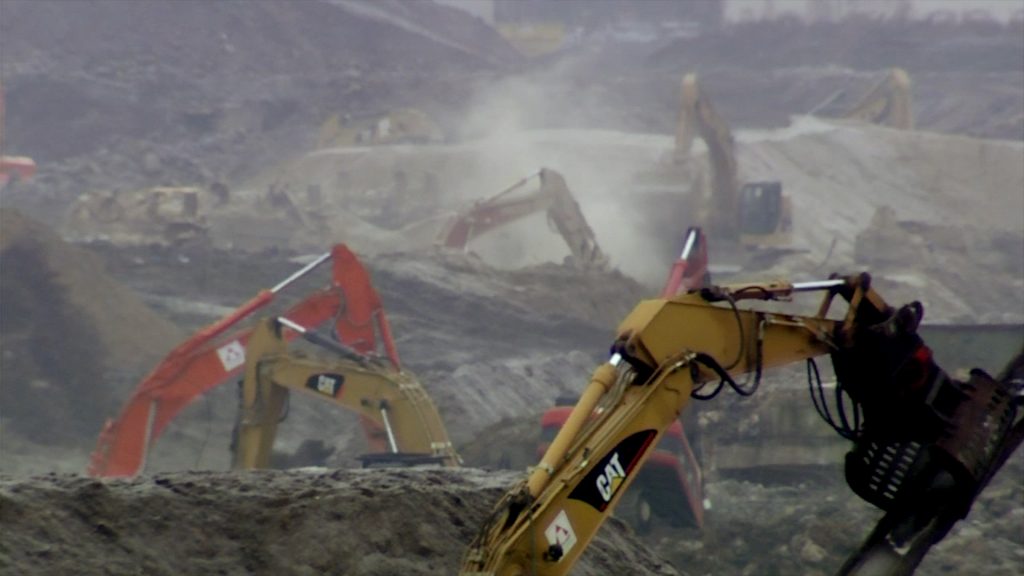
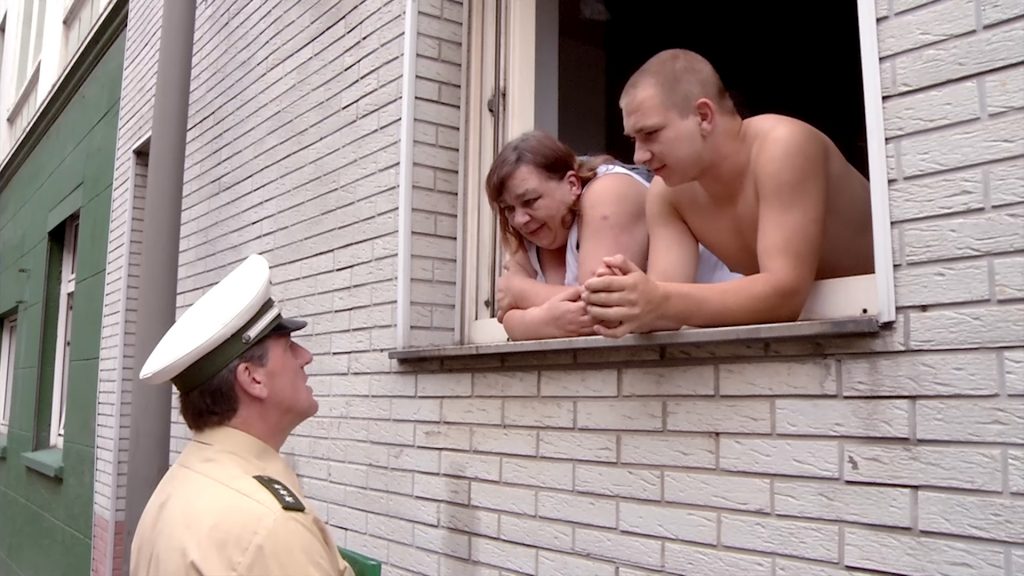


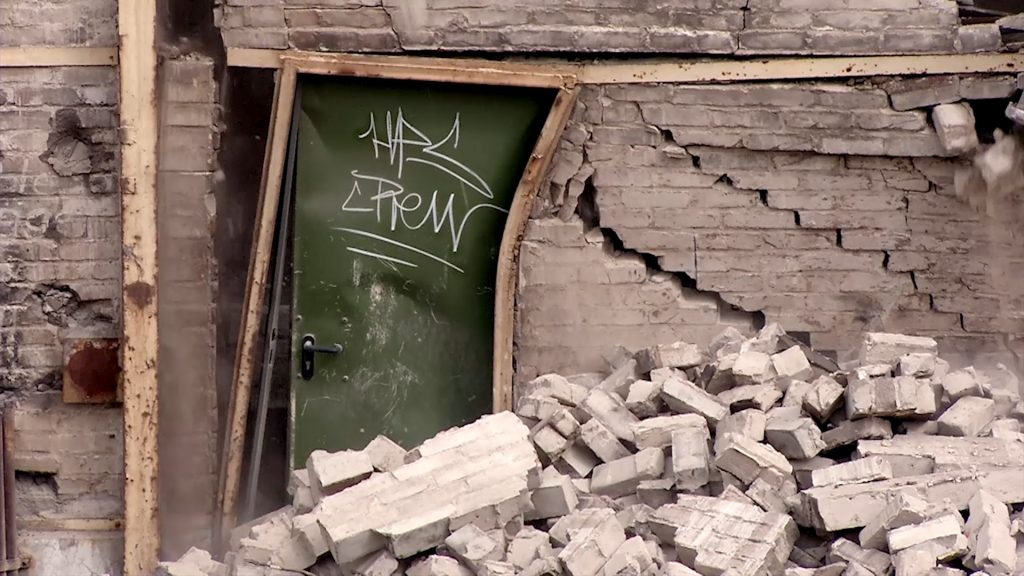




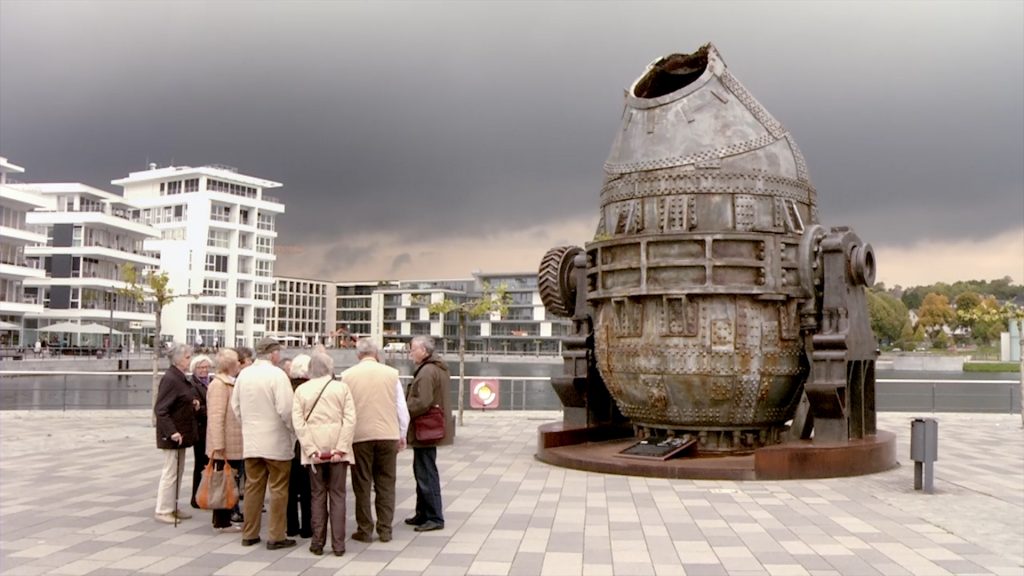
SYNOPSIS
Over a five-year period, a construction project was carried out in the working-class Hörde district of Dortmund. The former Phoenix-Ost steel plant, which once employed 18,000 people, was torn down to make room for an artificial lake – the Phoenix-See. With a surface area of 24 hectares, the Phoenix-See is larger than the Inner Alster lake in Hamburg. Luxury apartments and detached houses have been built, there is a marina and a plaza. The project descriptions of the Phoenix-See Development Company no longer tie the future of this part of town to the hard graft, steel production and environmental pollution of the past. The new buzzwords are recreation, relaxation and Mediterranean ambiance.
In Göttliche Lage, Ulrike Franke and Michael Loeken do more than document the progress of the building work, they also let investors and builders, planners and residents have their say. The film thus presents a complex picture of gentrification and of the ever-widening social gulf in post-industrial society. For in the streets neighbouring the Phoenix-See, the very same residents still have their homes as they did in the heyday of steel production. They have not moved into the new lakeside houses because they could never possibly afford to do so. And the first cracks are already beginning to appear in this promised new residential paradise: the lake, which as a rainwater storage basin forms part of the ecological restoration project for the Emscher River, has had a bathing ban imposed; parties in the evenings are a noise nuisance and the urban mansions now appear to have been built too close together.
Over a five-year period, a construction project was carried out in the working-class Hörde district of Dortmund. The former Phoenix-Ost steel plant, which once employed 18,000 people, was torn down to make room for an artificial lake – the Phoenix-See. With a surface area of 24 hectares, the Phoenix-See is larger than the Inner Alster lake in Hamburg. Luxury apartments and detached houses have been built, there is a marina and a plaza. The project descriptions of the Phoenix-See Development Company no longer tie the future of this part of town to the hard graft, steel production and environmental pollution of the past. The new buzzwords are recreation, relaxation and Mediterranean ambiance.
In Göttliche Lage, Ulrike Franke and Michael Loeken do more than document the progress of the building work, they also let investors and builders, planners and residents have their say. The film thus presents a complex picture of gentrification and of the ever-widening social gulf in post-industrial society. For in the streets neighbouring the Phoenix-See, the very same residents still have their homes as they did in the heyday of steel production. They have not moved into the new lakeside houses because they could never possibly afford to do so. And the first cracks are already beginning to appear in this promised new residential paradise: the lake, which as a rainwater storage basin forms part of the ecological restoration project for the Emscher River, has had a bathing ban imposed; parties in the evenings are a noise nuisance and the urban mansions now appear to have been built too close together.
CREDITS
Divine Location
A City Reinvents Itself
Germany 2014
99 Min (Original with english subtitles)
Göttliche Lage
Eine Stadt erfindet sich neu
Deutschland 2014
99 Min (D)
Directors: Ulrike Franke, Michael Loeken
Director of Photography: Jörg Adams, Michael Loeken, Dieter Stürmer
Location Sound: Filipp Forberg, Axel Schmidt
Editor: Bert Schmidt
Music: Eike Hosenfeld, Moritz Denis, Tim Stanzel
Commissioning Editor: Sabine Rollberg, Jutta Krug
Co-Produktion: WDR/arte
Supported by: Film- und Medienstiftung NRW, BKM, DFF
